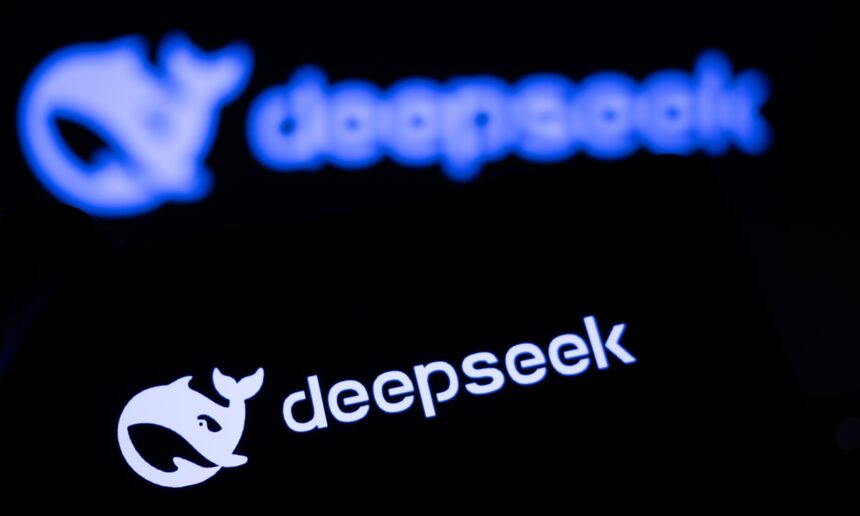China’s artificial intelligence (AI) company DeepSeek has launched its latest large model, DeepSeek-R1, which has achieved breakthroughs in several areas at an unexpectedly low cost, gaining popularity among users in multiple countries. This is a positive development in the field of AI, but some sectors and individuals in the US have shown hostility and aggression toward DeepSeek. However, if the US government attempts to block it with tariffs, export controls, or intellectual property claims, such actions would not only hinder the overall progress of AI technology but also be detrimental to the healthy and orderly development of AI technology in the US itself.
The emergence of DeepSeek actually proves that, under the guise of so-called national security, attempts to monopolize technology and suppress China’s technological progress are ultimately doomed to failure. Since 2022, the US government has restricted the export of Nvidia’s high-end chips to China in an attempt to delay China’s AI development through the “small yard, high fence” strategy. However, DeepSeek achieved a breakthrough under low computational power, which once again validates the paradox of “sanctions driving innovation.”
As economist Tyler Cowen has stated, although the chip ban delayed China’s access to hardware, it forced the development of more efficient alternatives, creating “unintended secondary consequences.” Moreover, this phenomenon of “technological equality” undermines the US strategy centered on chip control. Other countries could emulate DeepSeek’s model, compelling the US to reassess the cost-benefit balance of its sanctions.
The birth of AI software carries national attributes, yet the benefits derived from technological achievements belong to all of humanity. Internal divisions have emerged within think tanks regarding the US’ China strategy: one faction advocates for collaboration to harness “synergies,” while the other insists on escalating confrontation and “decoupling.” However, Microsoft CEO Satya Nadella and other industry leaders acknowledge that the breakthroughs of DeepSeek will make AI more accessible. If the US insists on a zero-sum game, it will accelerate its own isolation. Ultimately, technological competition without established rules will only evolve into “confrontation.” Only through technological cooperation can we seek the welfare of all humanity.
Using 20th-century geopolitical methods to address the technological revolution of the 21st century will only cause the US to miss valuable development opportunities. Whether it focuses on blockades and encirclements or seeks new ways to stand out from the competition will lead to entirely different outcomes.
It is important to recognize that the pressure brought by DeepSeek is likely to become a catalyst for technological advancement – Microsoft and OpenAI are accelerating model iterations, Meta announced optimizations for training energy consumption, and even some technologically closed-off tech giants of Silicon Valley are beginning to reassess their open-source strategies. Who can say that within the self-reform of these American tech giants, a new breakthrough won’t emerge? At the same time, it is certain that “decoupling” from China will inevitably lead to backlash against American companies.
In recent years, despite facing external blockades and crackdowns, China has still achieved remarkable technological accomplishments. This warrants reflection for certain individuals in Washington: What have the attempts to hinder China’s progress through restrictions and suppression brought to both China and the US? The chip restriction legislation has repeatedly harmed American tech companies, the Wolf Amendment has created barriers for US space research, and the blockade against Huawei has not stopped its pace of research and innovation. This truth, repeatedly proven by history, has once again been demonstrated to Washington by DeepSeek today: never underestimate the intelligence and ingenuity of the Chinese people, and never underestimate China’s steadfast determination for opening-up and self-improvement.
Now, in light of tech advancements like DeepSeek, some in the US continue to cling to a mind-set of blocking the technological progress of other countries, revealing their anxiety about maintaining hegemony and their short-sighted strategies. From a political economy perspective, sanctions have failed to curb innovation; instead, they have catalyzed alternative pathways. From the standpoint of the international trade system, unilateralism has accelerated the restructuring of rules and the revolution of supply chains. Washington should recognize that a “small yard, high fence” approach cannot obstruct China’s pace of innovation. In the advancement of AI technology, China and the US are at the forefront. The two countries can explore cooperation in areas such as formulating AI ethical standards, cross-border data governance, and joint responses to cyberattacks, which would benefit both nations and the world.













